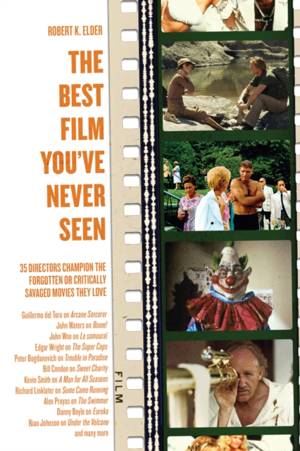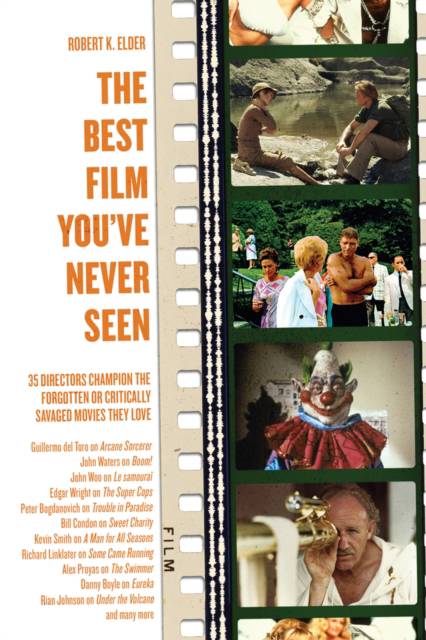
- Afhalen na 1 uur in een winkel met voorraad
- Gratis thuislevering in België vanaf € 30
- Ruim aanbod met 7 miljoen producten
- Afhalen na 1 uur in een winkel met voorraad
- Gratis thuislevering in België vanaf € 30
- Ruim aanbod met 7 miljoen producten
Zoeken
The Best Film You've Never Seen
35 Directors Champion the Forgotten or Critically Savaged Movies They Love
Robert K Elder
Paperback | Engels
€ 20,95
+ 41 punten
Omschrijving
In this book, 35 directors champion their favorite overlooked or critically savaged gems. Among these guilty pleasures, almost-masterpieces, and undeniable classics in need of revival are unsung noirs (Murder by Contract), famous flops (Can't Stop the Music, Joe Versus the Volcano), art films (L'ange), theatrical adaptations (The Iceman Cometh), B-movies (Killer Klowns from Outer Space), and even a few Oscar-winners (Some Came Running). In these conversations, the filmmakers defend their choices. These films, they argue, deserve a larger audience and for their place in movie history to be reconsidered. But the conversations' tangents, diversions, and side trips provide as much insight into the directors' own approach to moviemaking as into the film they're discussing. The filmmakers are the perfect hosts, often setting the tone, managing expectations, and giving advice about how you should watch each movie. They're often brutally honest about a film's shortcomings or the reasons why it was lost in the first place. The Best Film You've Never Seen is not only a guide to some badly overlooked movies but a bold attempt to rewrite film history.
Specificaties
Betrokkenen
- Auteur(s):
- Uitgeverij:
Inhoud
- Aantal bladzijden:
- 304
- Taal:
- Engels
Eigenschappen
- Productcode (EAN):
- 9781569768389
- Verschijningsdatum:
- 1/06/2013
- Uitvoering:
- Paperback
- Formaat:
- Trade paperback (VS)
- Afmetingen:
- 152 mm x 224 mm
- Gewicht:
- 385 g

Alleen bij Standaard Boekhandel
+ 41 punten op je klantenkaart van Standaard Boekhandel
Beoordelingen
We publiceren alleen reviews die voldoen aan de voorwaarden voor reviews. Bekijk onze voorwaarden voor reviews.











